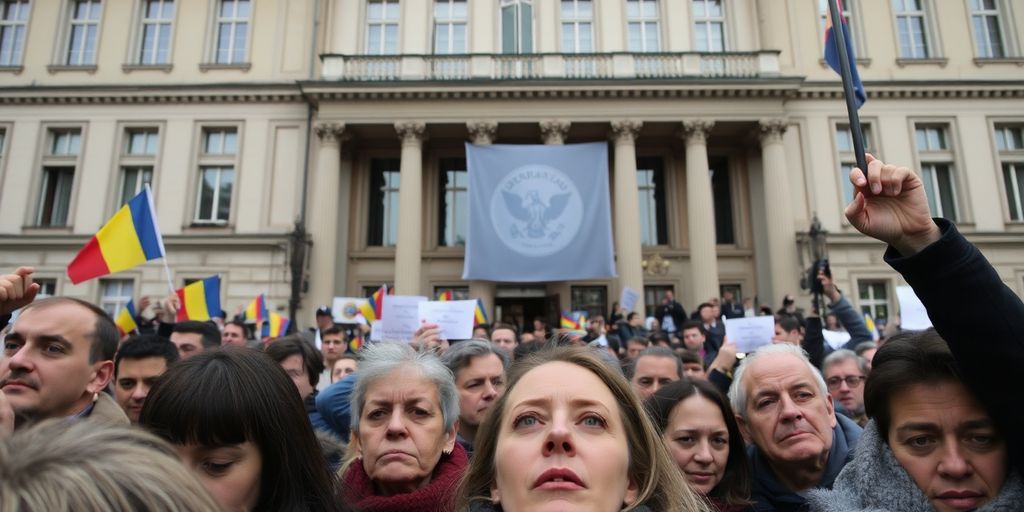In a historic and unprecedented move, Romania’s Constitutional Court has annulled the first round of the presidential elections held on November 24, 2024. This decision, announced on December 6, 2024, has thrown the country into political turmoil just days before the scheduled runoff between independent candidate Călin Georgescu and Elena Lasconi of the Save Romania Union (USR).
Key Takeaways
- The Constitutional Court annulled the first round of presidential elections due to alleged foreign interference.
- Approximately 9.5 million Romanians participated in the initial voting.
- The decision has raised questions about the integrity of the electoral process and the future of Romanian democracy.
The court’s ruling came as many Romanians abroad began voting in the runoff, which was set for December 8. The court stated that the electoral process was compromised by significant irregularities, including claims of foreign influence, particularly from Russia, which allegedly supported Georgescu’s campaign through social media platforms like TikTok.
The court’s decision was based on Article 146 of the Romanian Constitution, which empowers it to ensure the legality and correctness of electoral processes. The ruling stated that the entire electoral process would be restarted, with the government tasked to set a new date for the elections.
This cancellation has sparked widespread reactions across the political spectrum. Supporters of Georgescu have claimed that the ruling is a politically motivated attack on their candidate, while Lasconi and her supporters have denounced the decision as a blow to democracy in Romania.
Political Reactions
- Călin Georgescu: Described the annulment as a "state coup" and a conspiracy by the political elite to prevent him from winning.
- Elena Lasconi: Criticized the court’s decision, stating it undermines the democratic process and the will of the people.
- Marcel Ciolacu (PSD): Supported the court’s decision, emphasizing the need for a fair electoral process free from foreign interference.
The annulment has also raised questions about the interim leadership in Romania. Current President Klaus Iohannis, whose term ends on December 22, will remain in office until a new president is sworn in. This situation has led to discussions about who will assume the presidency in the interim, with potential candidates for acting president being the newly elected leaders of the Senate or the Chamber of Deputies.
Implications for Democracy
The annulment of the elections has significant implications for Romania’s democratic framework. Analysts are concerned that this decision could set a dangerous precedent, undermining public trust in electoral institutions. The situation has drawn international attention, with calls for transparency and accountability in the electoral process.
As the country prepares for a new electoral cycle, the focus will be on ensuring that the next elections are conducted fairly and without external influence. The upcoming months will be crucial for Romania as it navigates this political crisis and seeks to restore confidence in its democratic institutions.
In conclusion, the cancellation of the presidential elections in Romania marks a critical juncture in the country’s political landscape, raising urgent questions about the integrity of its electoral processes and the future of its democracy.
Sources
- Anulate, rezultatele primului tur al alegerilor prezidențiale din România – Vatican News, Vatican News.
- euronews.ro: Știri de ultimă oră, breaking news, #AllViews, Euronews România.
- Curtea Constituțională a anulat alegerile prezidențiale. Procesul electoral va fi reluat „în integralitate”, Europa Liberă România.
- România: Curtea Constituțională a anulat alegerile prezidențiale. Procesul electoral va fi reluat „în integralitate”, Europa Libera Moldova.
- „Ce naiba se întâmplă în România?”. Reacție în presa internațională după anularea alegerilor prezidențiale – HotNews.ro, HotNews.ro.






